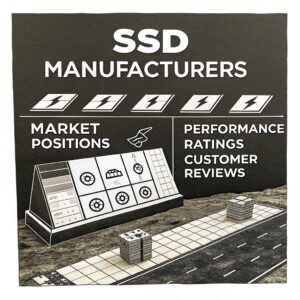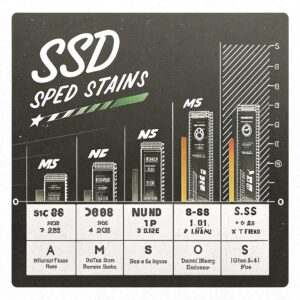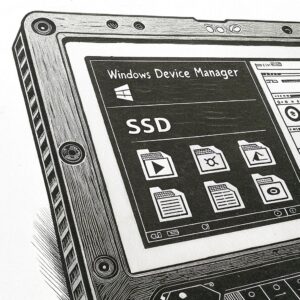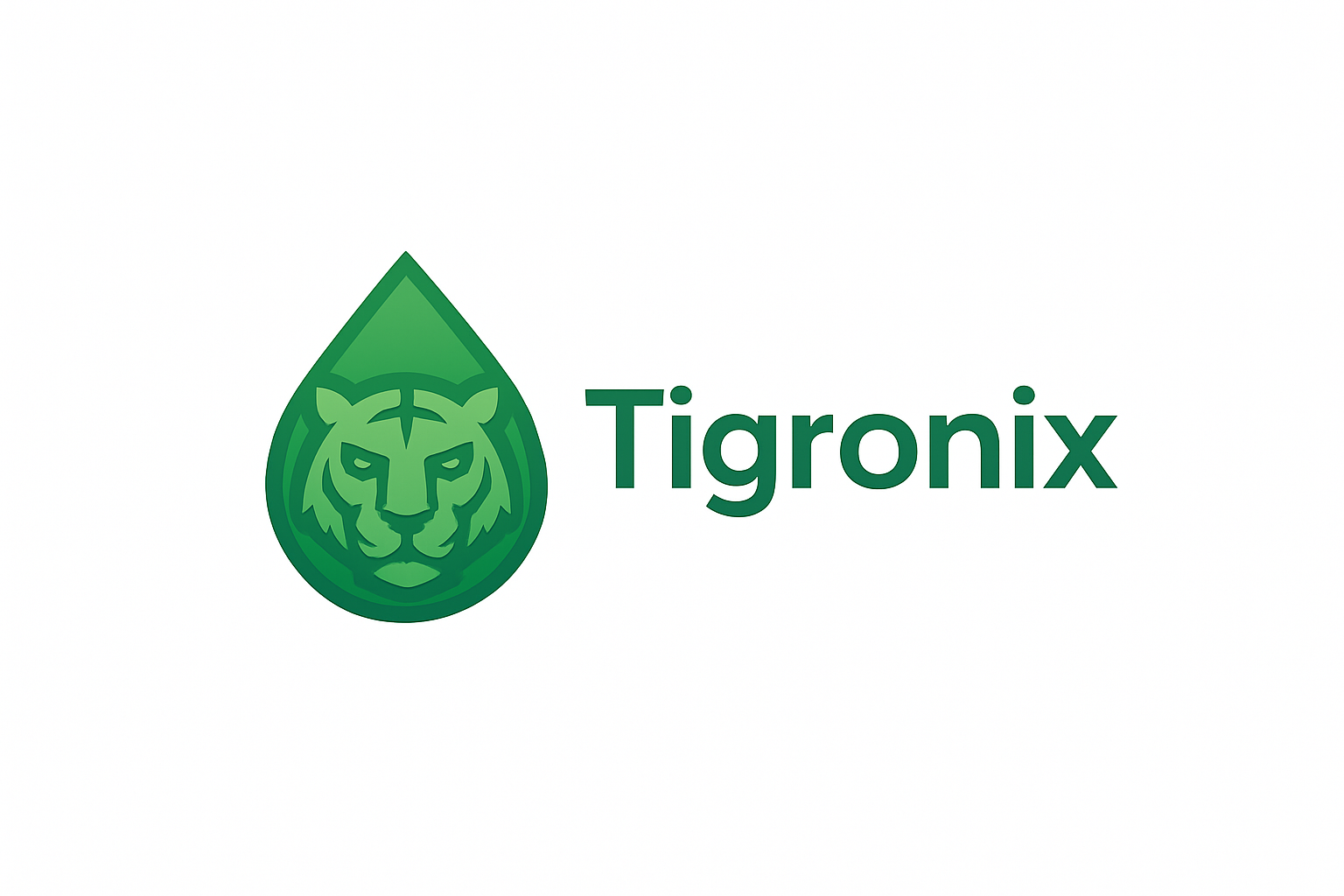Choosing the right SSD can feel overwhelming when you’re staring at dozens of brands and models. You needChoosing the right SSD[^1] can feel overwhelming when you’re staring at dozens of brands and models. You need reliable storage that won’t fail when you need it most.
[^1]: This resource will guide you through essential factors to consider for selecting the perfect SSD for your needs.
that won’t fail when you need it most.
The top SSD manufacturers include Samsung, Western Digital, Kingston, SanDisk, and emerging Chinese brands like ZhiTai, with Samsung consistently leading in performance and reliability across consumer and enterprise markets. [2]

Understanding who makes quality SSDs and identifying your current drive’s manufacturer helps you make informed decisions about upgrades and replacements. Let me share what I’ve learned from working with storage solutions in our manufacturing operations.
Who Manufactures SSD Drives Today?
The SSD market feels like a battleground where established giants compete with nimble newcomers. As someone who’s seen storage evolve in our industry, this competition benefits everyone.
Major SSD manufacturers include Samsung, Western Digital, Kingston, SanDisk, ZhiTai, Acer Predator, Seagate, FANXIANG, Toshiba, and Great Wall, with Samsung holding the top position in market rankings. [2]

The current market landscape shows interesting dynamics. Samsung dominates with their advanced Samsung dominates with their advanced 3D NAND technology, offering drives that consistently deliver high performance[^1]
[^1]: This resource will help you understand the significance of high performance in drives and its effect on system efficiency.
, offering drives that consistently deliver high performance [2]. Their 990 EVO Plus series with 7250MB/s read speeds represents cutting-edge consumer technology. I’ve personally used Samsung drives in critical applications where failure isn’t an option.
Western Digital follows closely, particularly strong in portable SSDs with their Elements SE series [2]. Their reputation for reliability makes them popular in professional environments. Kingston brings decades of memory expertise to the SSD space, with their NV3 series providing excellent value for AI and gaming applications [2].
ZhiTai, manufactured by Yangtze Memory Technologies, represents China’s growing influence in storage technology [2]. Their TiPlus7100 series demonstrates how newer manufacturers can compete on both performance and price. This shift toward regional manufacturing gives consumers more choices while driving innovation.
The manufacturing landscape also includes specialized players like Acer’s Predator brand targeting gamers, and enterprise-focused companies like Seagate expanding from traditional hard drives [2]. Even brands like FANXIANG and Great Wall show how the barrier to entry has lowered, allowing more manufacturers to offer competitive solutions [2].
| Manufacturer | Market Position | Key Strengths | Target Market |
|---|---|---|---|
| Samsung | Market Leader | Advanced 3D NAND, High Performance | Consumer, Enterprise |
| Western Digital | Established Player | Reliability, Portable Solutions | Professional, Consumer |
| Kingston | Memory Specialist | Value, Gaming Applications | Budget-Conscious Users |
| ZhiTai | Emerging Force | Competitive Pricing, Good Performance | Cost-Sensitive Markets |
| SanDisk | Premium Brand | Durability, Mobile Solutions | Content Creators |
Who Makes the Best Solid State Drives?
Determining the "best" SSD manufacturer depends on your specific needs and budget. After years of testing drives in demanding applications, I’ve learned that different manufacturers excel in different areas.
Samsung consistently ranks as the top SSD manufacturer for overall quality, followed by Western Digital and Kingston, with newer brands like ZhiTai offering competitive alternatives at lower price points. [2]

Samsung earns its top position through technological leadership and consistent quality. Their 3D NAND technology provides better performance, durability, and energy efficiency compared to traditional planar NAND [4]. I’ve seen their enterprise drives run for years without issues in our production environment. The company’s vertical integration, from NAND manufacturing to controller design, gives them quality control advantages that translate to reliable products.
Western Digital deserves recognition for reliability and innovation in portable storage. Their acquisition of SanDisk strengthened their position significantly. In my experience, WD drives offer excellent price-to-performance ratios, especially for users who prioritize dependability over cutting-edge speeds.
Kingston brings memory expertise that shows in their SSD designs. Their drives often provide the best value proposition, offering solid performance at competitive prices. For budget-conscious users building systems, Kingston frequently represents the sweet spot between cost and capability.
The emerging Chinese manufacturers like ZhiTai present interesting alternatives. They leverage advanced manufacturing capabilities to offerThe emerging Chinese manufacturers like ZhiTai present interesting alternatives. They leverage advanced manufacturing capabilities[^1] to offer competitive performance at lower prices
[^1]: Explore this link to understand how advanced manufacturing capabilities are transforming industries and driving innovation in China.
[2]. While they lack the long-term track record of established brands, their technical specifications often match or exceed more expensive options.
For specific use cases, different manufacturers shine:
- Gaming and AI Applications: Samsung and Kingston lead with high-speed NVMe drives
- Professional Content Creation: SanDisk and Western Digital excel in portable solutions
- Enterprise Applications: Samsung, Intel, and enterprise-focused brands dominate
- Budget Builds: ZhiTai, FANXIANG, and Kingston offer excellent value
Quality metrics extend beyond raw speed. Endurance ratings, warranty terms, and customer support vary significantly between manufacturers. Samsung typically offers superior warranties and has established service networks globally. Newer manufacturers may provide competitive products but with less comprehensive support infrastructure.
How to Find the Manufacturer of Your SSD?
Knowing your current SSD’s manufacturer helps with warranty claims, driver updates, and replacement planning. Windows provides several built-in methods to identify your storage hardware without opening your computer.
You can find your SSD manufacturer in Windows 10/11 by opening Device Manager, expanding "Disk drives," or using PowerShell with the "Get-PhysicalDisk" command to display detailed hardware information including brand and model. [7][8]

The Device Manager method works reliably for most users. Press Windows + X and select "Device Manager," then expand the "Disk drives" section [8]. You’ll see entries like "Samsung SSD 980 PRO 1TB" or "WD Blue SN570 NVMe SSD" that clearly show the manufacturer and model.
For more detailed information, PowerShell provides comprehensive data. Open PowerShell as an administrator and run "Get-PhysicalDisk" [7][8]. This command displays manufacturer, model, media type, size, and health status for each drive. The output includes information that basic Windows tools might not show.
Third-party utilities offer additional details. CrystalDiskInfo provides extensive information about drive health, temperature, and specifications. HWiNFO64 shows detailed hardware information including firmware versions and technical specifications. These tools prove especially valuable when troubleshooting performance issues or planning upgrades.
Command Prompt also provides storage information through the "wmic" command. Type "wmic diskdrive get size,model" to see basic drive information [7]. While less detailed than PowerShell, this method works on older Windows versions.
For users with multiple drives, identifying which physical drive corresponds to which drive letter requires correlation. The Disk Management utility (diskmgmt.msc) shows the relationship between physical drives and logical partitions [7]. This information helps when you need to identify a specific drive among several installed SSDs.
| Method | Ease of Use | Detail Level | Best For |
|---|---|---|---|
| Device Manager | Very Easy | Basic | Quick identification |
| PowerShell | Moderate | Comprehensive | Technical users |
| Third-party tools | Easy | Extensive | Detailed analysis |
| Command Prompt | Easy | Basic | Legacy systems |
| System Information | Easy | Moderate | General overview |
Some manufacturers provide proprietary software that offers enhanced information and management features. Samsung Magician, Intel SSD Toolbox, and Western Digital SSD Dashboard provide manufacturer-specific tools for monitoring, optimization, and firmware updates. Installing the appropriate software for your drive manufacturer often provides the most comprehensive management capabilities.
Conclusion
Understanding SSD manufacturers and identifying your drives empowers better storage decisions and maintenance practices for optimal system performance.
